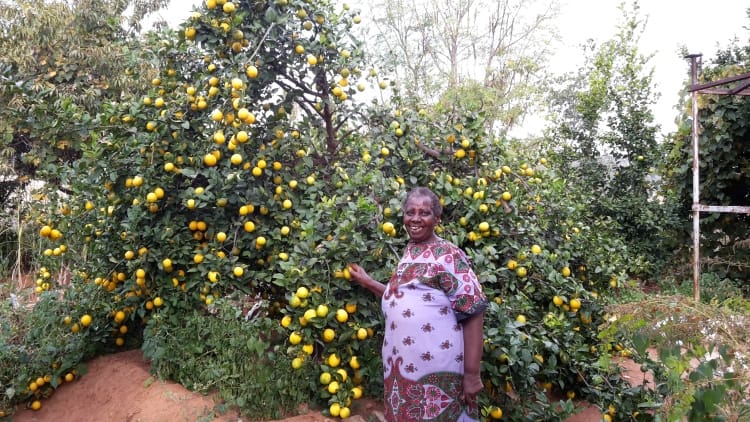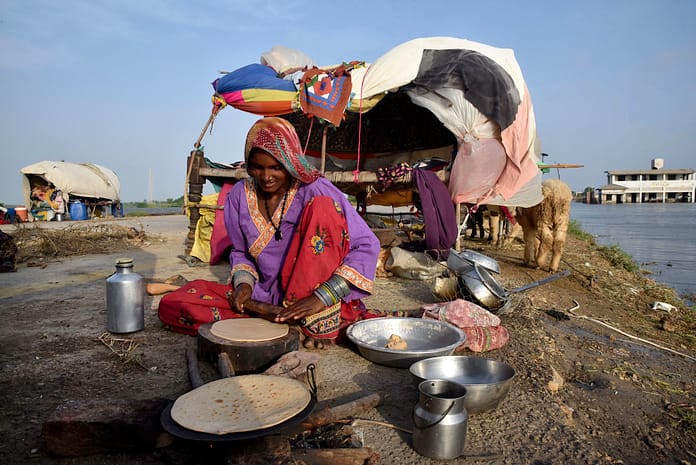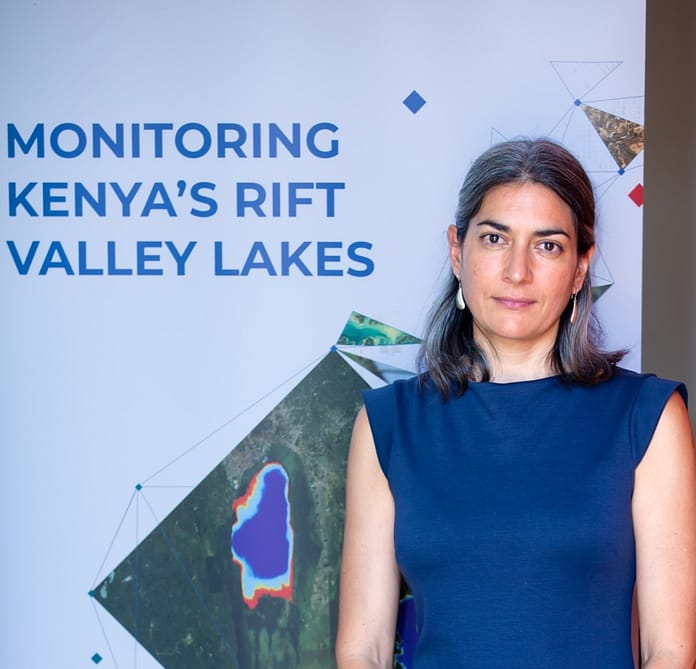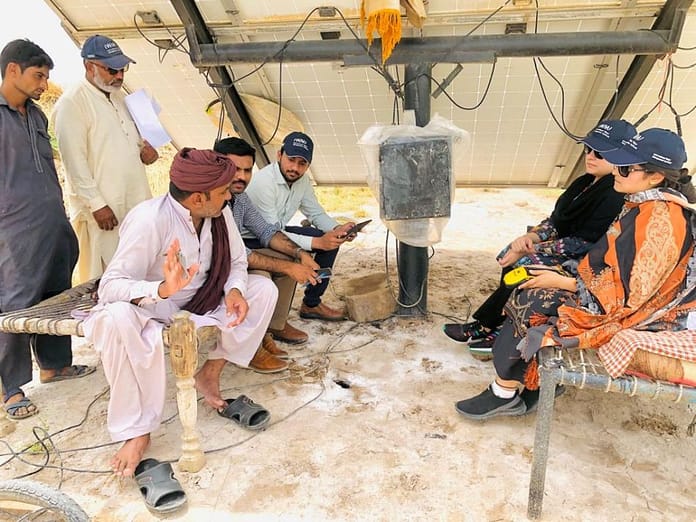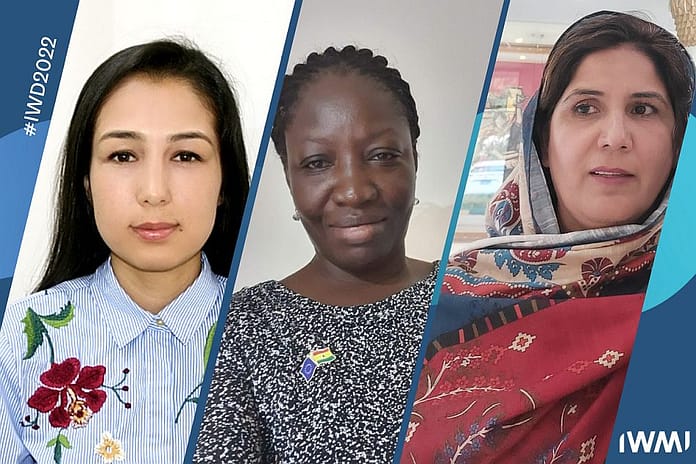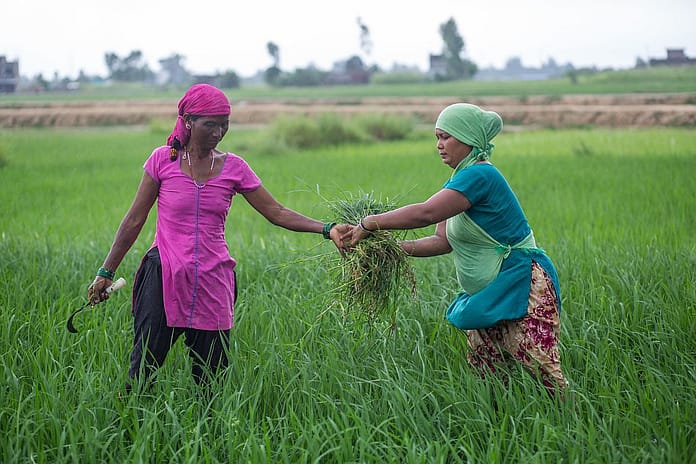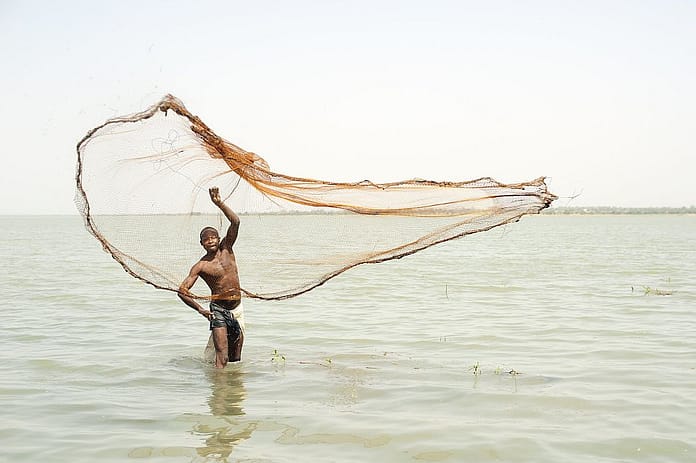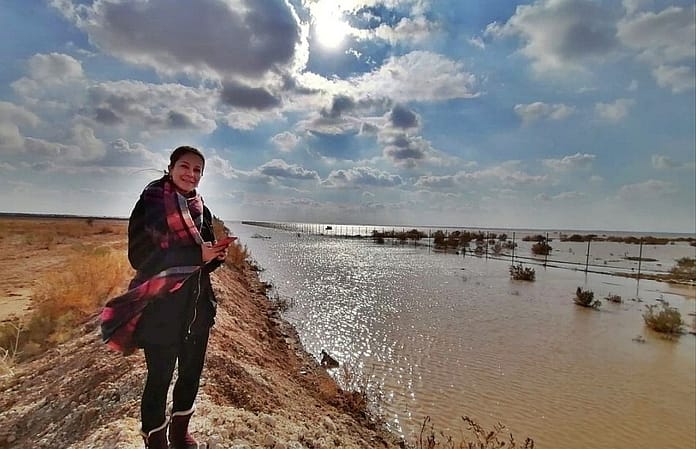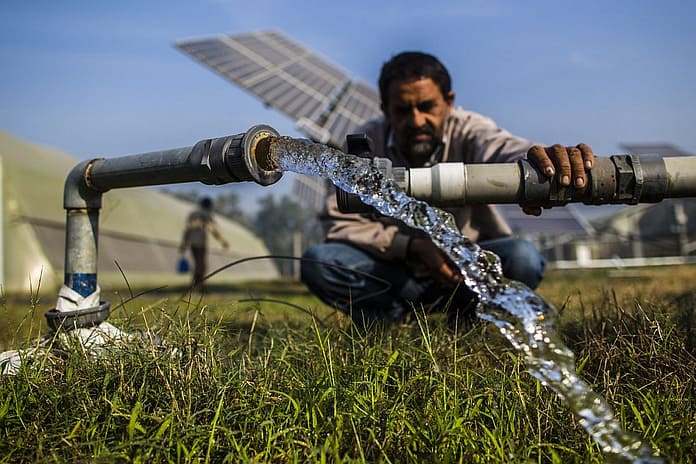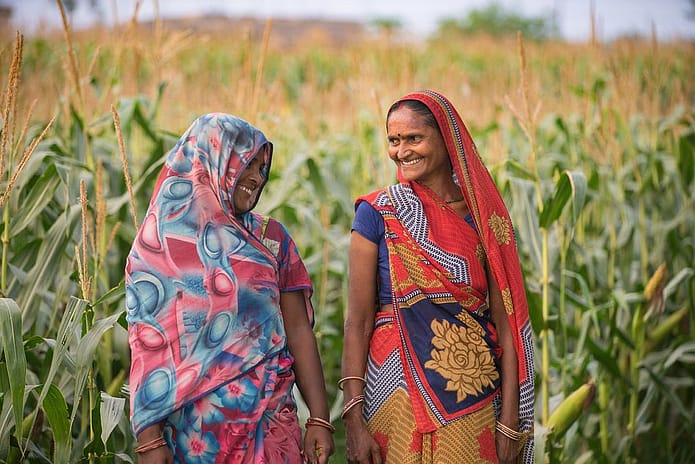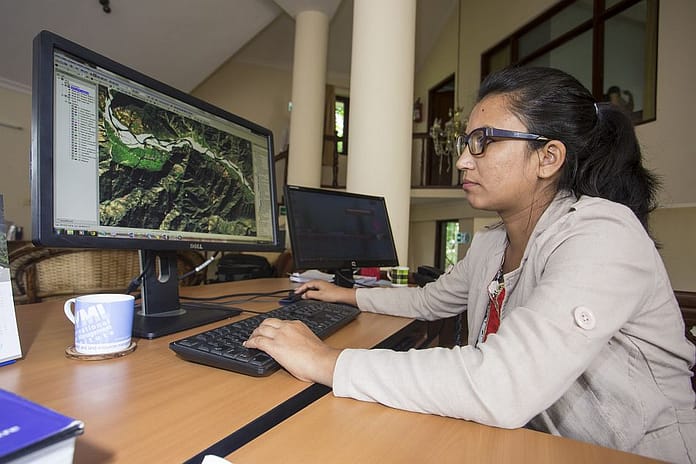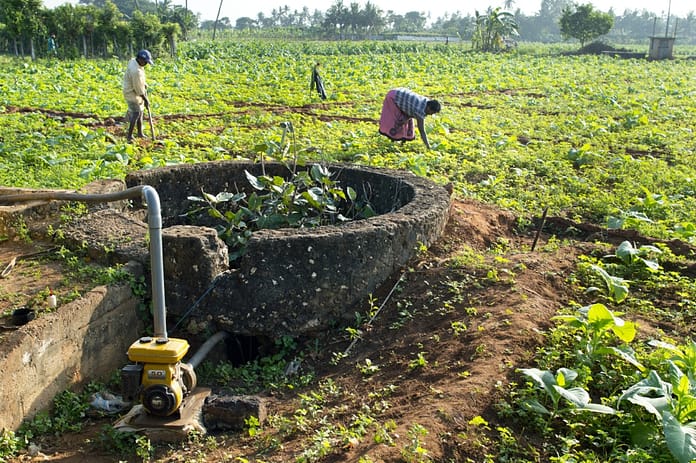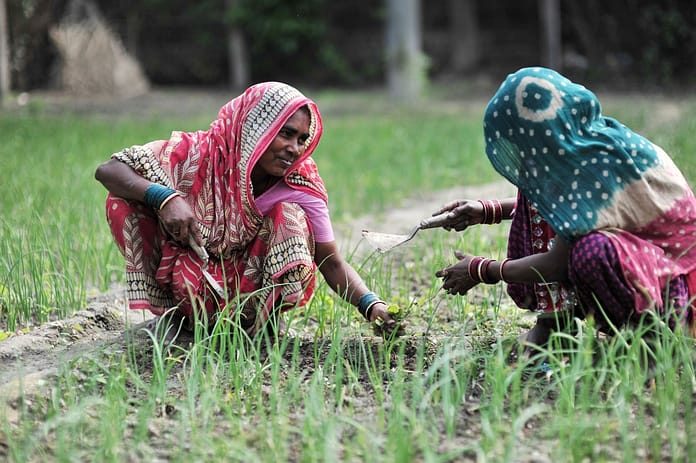In preparing to celebrate International Women’s Day, we asked our researchers at the International Water Management Institute (IWMI) to offer personal perspectives on the theme for 2019 — think equal, build smart, innovate for change — and to explain how their work addresses this theme.
We also invited IWMI researchers working specifically on gender in water management to share recent studies illustrating the connections between their work and the theme. See, for example, our report on work in Western Nepal, which emphasizes the importance of investing in the social capital and capabilities of women and marginalized people generally to make water management more just and effective.
A statement from IWMI’s country representative in Nepal views this and other research in the wider context of profound political changes in the country, which have enormous implications for gender equality and represent new opportunities for IWMI researchers to make a difference.
Farah Ahmed, Manager, Communications and Knowledge Management, India
I believe in bringing about change, creating impacts and equal opportunities for all. I believe science has the power to innovate and create new solutions for the betterment of vulnerable communities. IWMI in India develops water management practices and models to provide new technologies for effective use of water, create participatory approaches for all to better understand the challenges around our ecosystem and support efficient use of resources. In India, I narrate stories of change! Changes brought about in the lives of people through science-based innovations and solutions, impacting and influencing relevant stakeholders to bring about changes in policy and practice. I ensure that scientific knowledge is translated into simple language for sharing and creating opportunities for all to collaborate.
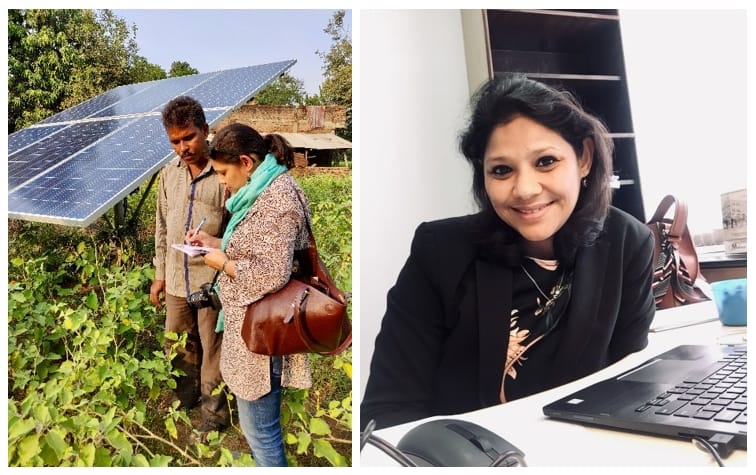
Indika Arulingam, Research Officer, Headquarters
We were recently in Myanmar’s Irrawaddy Delta, looking at the opportunities and constraints for youth engagement in agriculture and fisheries under the CGIAR Research Program on Fish, when we came across young female fish sellers using mobile phones to obtain information on market prices for the day. This illustrates how information and communication technologies are increasingly being used to circumvent some of the challenges traditionally faced by young farmers and fishers. These include challenges of access to land, finances, extension services, markets and decision-making, and are almost always amplified in the case of young women. Owing a mobile phone and connecting to the internet can mean better access to information, extension services, markets and other resources. While these new opportunities open up, however, it is important to ensure that they benefit young female farmers and fishers in different circumstances equally.
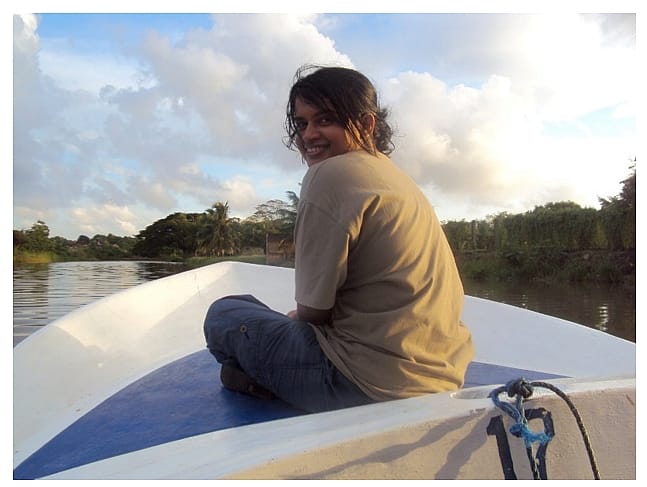
Sanjiv de Silva, Researcher, Headquarters
I was in flood-affected villages in Bangladesh to understand what contextual factors impede access to Index-based flood insurance against crop damage for marginal groups, including women. Illiteracy, unaffordability and even women’s restricted mobility are solvable through visual and verbal communication methods as well as savings or credit schemes, and by bringing information to where women live. The challenge is not informing women of options; it is their inability to act on information, in this case by their subservience in the household hierarchy around who makes decisions. Thus, innovation must combine with wider social change.
Deepa Joshi, Gender, Youth and Inclusion Lead Specialist, Headquarters
In 2017, under the Digo Jal Bikas project, IWMI-Nepal organized a Men and Masculinities workshop with water sector practitioners in Kathmandu. This became one of those rare gender workshops where men were equally represented and stayed till the end. Honest, perceptive reflections slowly gave way to an understanding that the social burdens of being a man, exercising masculinities – also weigh heavily on men, as they definitely do on women. There was no blame game – no women are better than men narratives, just an understanding that behaviors and attitudes must and can change. All the research evidence on gender will translate to little unless those who implement programs understand and are motivated to translate knowledge into practice. This lack of attention to understanding and changing the “incentive regime” (Kingari, 2010) of practitioners and decision-makers is to me the single most relevant challenge in achieving gender equality.
Likimyelesh Nigussie, Research Officer, Ethiopia
Gender relations shape the participation of men and women in water resources planning and development. Men and women differ in their needs, access and level of participation in water resources management. Recognizing these differences, IWMI and Newcastle University pilot tested a citizen-science approach to hydro-meteorological monitoring, and various voluntary participation incentives at four locations in Ethiopia. The approach provided equal opportunities for all to learn and generate hydrological knowledge. However, women’s willingness and participation were challenged by work burden, illiteracy, male-dominated culture, low self-confidence, etc. This indicates the need for innovative complementary approaches and building on existing structures and best practices that address structural barriers to include and empower women in science and water governance.
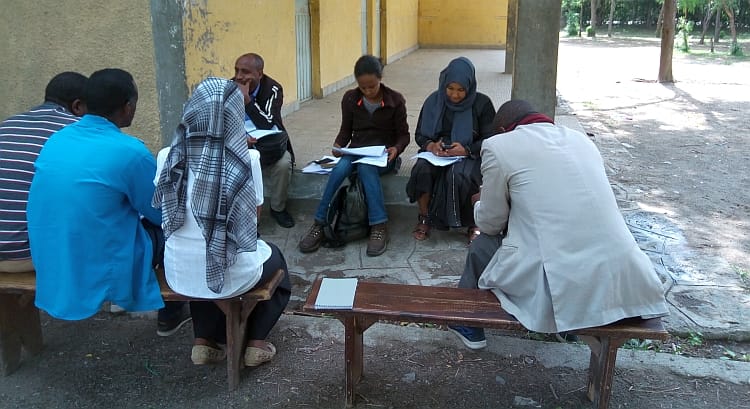
Petra Schmitter, Research Group Leader, Myanmar
Many technologies remain out of reach of smallholder farmers. Women and resource-poor farmers are particularly disadvantaged. As leader of our Agriculture Water Management group, I have the pleasure of thinking daily about the next generation of technologies to #LeaveNoOneBehind and support agricultural resilience for farmers in different situations and locations. One of my favorite topics is revolutionizing #irrigated agriculture through digital information access, independent of where or who you are.
Sonali Sellamuttu, Myanmar Country Representative
Millions of people are affected by floods every year, and climate change has further exacerbated this situation. Poor people are particularly vulnerable to floods. To innovate for change, IWMI is piloting an index-based flood insurance scheme in Bihar (India) as one way to buffer farmers against flood risks. Recognizing that often the poorest and most disenfranchized groups (women, landless and tenant farmers) may not have access to these insurance products due to gendered norms, illiteracy and no formal land ownership, we are striving to think equal and build smart insurance products that are more inclusive – by better understanding local socio-economic and structural barriers and institutional arrangements.
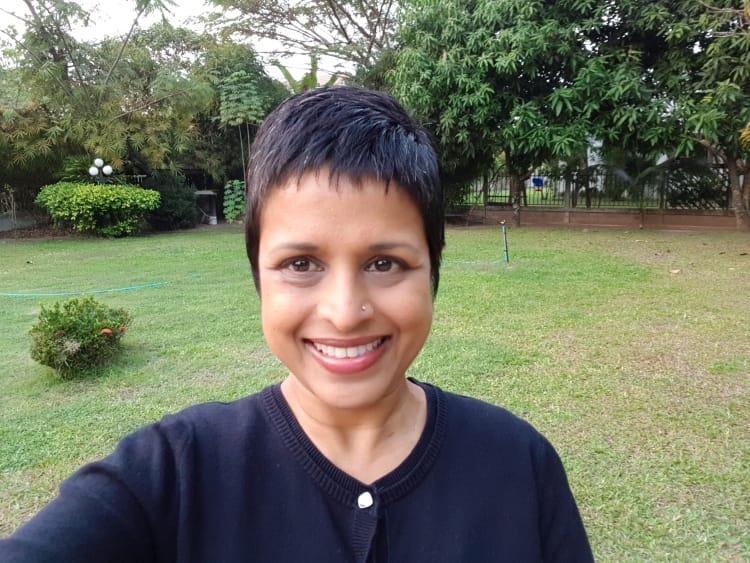
Alok Sikka, India Country Representative
In South Asia, it is often hard to find water users associations (WUA) in which women members participate actively. However, the potential for women’s involvement in WUAs was illustrated in an IWMI study of a “minor irrigation project” at Purulia in West Bengal, India, where a group of tribal women had taken full charge of the WUA. In less than a year, this women-only WUA had managed not only to build convergence with other government departments but also maintain the irrigation infrastructure and services, including installing a community pump. The group went the extra mile, deciding to grow a short-duration, drought-resistant paddy variety, adopting SRI (system of rice intensification) practices, and undertaking seed treatment and preservation. Their success as irrigators and producers enabled them to close illicit alcohol shops in the local areas. One of the key impacts of this success was reduced out-migration of local youth.
Barbara van Koppen, Rural Sociologist and Gender Expert, South Africa
As a social worker under South Africa’s apartheid regime, MmaTshepo Khumbane refused to be “the ventbelt” for the government but instead took up the struggle in former homelands. She organized women, who were burdened with their own survival and with the informal care economy of new generations, the sick and pensioners, which enabled ultra-exploitation of their migrating men. Together with current president Ramaphosa and many others, MmaTshepo organized women and men for food security. Post-1994 she established a homestead for herself and her son, and for hundreds of visitors, including IWMI interns, researchers and Board members. She showed by example what can be done with ten fingers, rain given by god, good soil management, and infinite local knowledge. Her heart and vision were with the most marginalized, the “nobodies.” “We don’t plant cabbages, we plant hope.” With a rocketing electricity bill some six years ago, friends organized a solar system to electrify her house and the groundwater pump. In December the panels were stolen. On 22 January she passed on. The struggle for justice and food security is hard.
